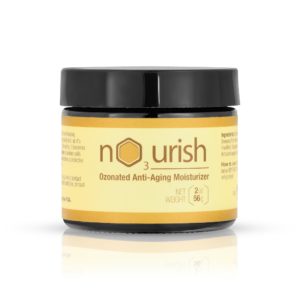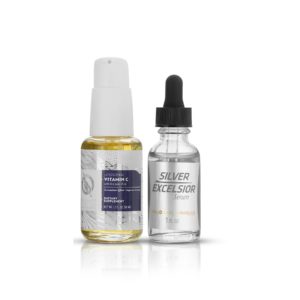Sharing is caring!
There are dozens of impressive studies on the benefits of molecular hydrogen (H2). However, one of the most significant discoveries is that it helps to bring cells and organs back to homeostasis.
Homeostasis stabilizes and balances our body chemistry so that our organs work smoothly and efficiently with each other. Molecular hydrogen is a small but powerful antioxidant, which in its natural state is a tasteless, odorless gas. Much of molecular hydrogen’s positive homeostasis impact comes from its anti-inflammatory properties.
On a recent Bulletproof Radio podcast, Tyler LeBaron, Founder and Executive Director of the Molecular Hydrogen Foundation, explained:
“Hydrogen really shines in its ability to bring back inflammation to homeostasis, so it can help to (reduce) pro-inflammatory mediators that are excessive and bring them back into the normal range.”
LeBaron says studies prove that hydrogen can indirectly activate NF-kB, a protein complex and key regulator of the inflammatory process. The activation can result in a “slight, mild, transient increase in inflammation — followed by a decrease in inflammation that is systemic.”
Rheumatoid Arthritis and Parkinson’s
LeBaron is especially encouraged by studies that show a connection between ingesting hydrogen-rich water and lowering inflammation associated with rheumatoid arthritis and Parkinson’s disease. Just a year and a half ago, the American Journal of Translational Research published a study on how molecular hydrogen decelerates rheumatoid arthritis progression through inhibition of oxidative stress. Around the same time, the National Center for Biotechnology Information (NCBI) published the results of a random double-blind study showing that drinking hydrogen water for 48 weeks “significantly improved” symptoms of Parkinson’s disease patients.
“Some of the patients with early-stage rheumatoid arthritis actually had a complete remission of the disease,” says LeBaron.
H2’s Courtship Of The Gut Microbiome
Sickness is the disruption of homeostasis. Conventional medicine treats sickness with pharmaceuticals. The problem is that while antibiotics and other strong medicines may have short-term benefits, they also can have a devastating impact on one of our most important health centers — the gut microbiome. That’s because strong medicines wipe out all microbes, both friend and foe, creating a microbiota imbalance that can lead to an assortment of health issues including weakened immune function, hormonal problems, allergies, eczema, insomnia, irritable bowel syndrome (IBS), mood disorders, inflammation, leaky gut syndrome, and even obesity.
Molecular hydrogen is a selective, gentle natural antibiotic. In this sense, it helps homeostasis by not disrupting it. According to Pharmacology & Therapeutics, “Owing to its great efficacy and lack of adverse effects, H2 has promising potential for clinical use against many diseases.”
Another study concludes, “Microbial molecular hydrogen cycling is central to metabolic homeostasis and microbial composition in the human gastrointestinal tract.”
Small But With Big Punches
Researchers believe H2’s prowess for “righting the ship” when it comes to homeostasis, lies in molecular hydrogen’s design as the smallest and lightest element in the periodic table. Molecular hydrogen is possibly the only antioxidant molecule that can reach inside the mitochondria (power generators) of a cell where it reduces oxidative stress.
This ability to work deep within the cellular level puts H2 in the perfect position to neutralize free radicals and reduce oxidative stress. Once inside the mitochondria, previous studies have shown that molecular hydrogen (H2) exerts anti-inflammatory properties and protects cells from harmful agents while also acting as an antioxidant.
It also helps that molecular hydrogen is hydrophobic, meaning it is not diluted by water, which allows mitochondria access. In contrast, vitamin C as an antioxidant is hydrophilic, meaning it becomes diluted in water so it has problems in trying to pass through a cell’s fatty layer.
Homeostasis And H2 On PTSD
As research continues into molecular hydrogen’s homeostatic proclivity, more and more chronic diseases are believed to be ameliorated by H2. One of those is the enigmatic Post Traumatic Stress Disorder (PTSD), a psychological disorder that strikes millions of U.S. adults per year.
“There is evidence that oxidative stress plays a role in the pathogenesis (development) of PTSD, and some studies have found that those suffering from the disorder have low levels of antioxidant activity compared to control groups,” says healthcare writer and editor Claudia Rallis.
Certified integrative nutrition coach Connie Rogers says studies prove that the gut microbiome negatively changes with oxidative stress, which increases symptoms of PTSD. Molecular hydrogen helps gut microbiomes stay healthy by reducing oxidative stress, which in turn lessons PTSD symptoms.
“Molecular hydrogen has the ability to fight oxidative stress in the body that leads to inflammatory conditions,” Rogers says. “Molecular hydrogen helps build a good gut microbiome, helps prevent cognitive decline, and helps you regain health from PTSD.”
LeBaron points to studies that show H2 can help reduce traumatic brain injury as well as help with depression-like symptoms.
“We also see that H2 has benefits for many neurological diseases,” LeBaron says.
A National Treasure – In Japan
While slow to catch on in the United States, other countries have embraced the homeostatic benefits of molecular hydrogen. It is estimated that over 50 percent of the Japanese population do use, or have used, in some way or other, hydrogen. Japan’s health ministry approved hydrogen-infused saline IVs for medical use to help treat (solo or alongside other medications) everything from dehydration to serious infections.
A recent study from Japan reports that hydrogen inhalation was “significantly more effective” at treating stroke patients than conventional medicine.
“The Japanese government also recently gave the approval for hydrogen inhalation as an advanced medicine to treat post-cardiac arrest patients,” LeBaron says.
If you have a heart attack, LeBaron explains, when you restart the heart and the blood goes to the brain, you get the ischemia-reperfusion injury, where all the oxygen-rich blood goes to the brain, causing lots of free radicals, damage, and inflammation.
Even death.
Unlike strong conventional medicines, “Hydrogen is very safe,” says LeBaron. “There’s no toxicity with it. It’s very easy to administer. So far the clinical results are very positive.”
Move Over Tang, Astronauts Go With H2
Another proven homeostatic benefit of molecular hydrogen is in the area of sports medicine.
One study reports that H2 may significantly help keep us better hydrated. Another study concluded that drinking molecular hydrogen water was an effective fluid hydration strategy for athletes. This is significant considering studies show two of three people are partially dehydrated. Even light dehydration of no more than 2 percent of total body weight disturbs physiological functions and decreases the body’s efficiency. Metabolism and energy levels are directly affected, and this extends even further to mood and mental alertness.
Molecular hydrogen can also be applied directly to areas of the body where injury and pain occur, says nationally recognized sports nutritionist, strength and conditioning coach Brandon Mentore.
“Hydrogen is the most significant element to life itself,” Mentore says. “Hydrogen has multiple cellular protective properties in the human body and has the ability to upregulate virtually all metabolic processes.”
Even astronauts may soon be leaving their sugary Tang at home and flying with H2. According to LeBaron, NASA is “very interested” in looking at a hydrogen to help protect astronauts during space travel to help mitigate the toxic effects of radiation.
LeBaron believes H2 may also benefit pilots and even passengers who fly frequently.
“Taking hydrogen-rich water, or inhalation, before your flight, before you get up in the air, could be a potential way to help mitigate that radiation-induced damage,” LeBaron says. “Hydrogen could mitigate the decrease in 8-OHdG, the marker of DNA damage.”
Molecular hydrogen might also help frequent fliers sensitive to an aerotoxic syndrome, an illness caused by exposure to contaminated air in jet aircraft.
And How About Looking Younger?
Many studies prove molecular hydrogen helps fight age-related illnesses. In July 2016, a Japanese study concluded: “substantial evidence” indicates molecular hydrogen has beneficial vascular benefits because of its antioxidant and anti-inflammatory effects, possibly making it “an effective anti-aging drink.”
In the 1950s, biogerontologist Denham Harman first proposed the free radical theory of aging. The idea is that our skin loses its elasticity and we age because cells accumulate free radical damage over time. Exposure to ultraviolet light can increase concentrations of ROS (Reactive Oxygen Species) and free radicals dramatically.
“By taking an antioxidant such as molecular hydrogen, you could help mitigate some of the damage caused by this increase in ROS,” says Rallis.
Rallis says H2 shouldn’t be a substitute for organic sunscreen or other UV protection, but reducing oxidative stress through the use of the anti-aging supplement molecular hydrogen “should help slow down the aging process and help give you younger, healthier-looking skin.”
There are several ways to get molecular hydrogen into your system including drinking hydrogen infused water, H2 inhalation, taking an H2 bath, or putting H2-saline into the eyes. The easiest and probably most efficient method is by simply dropping an H2 tablet in water and then drinking it. In all cases, molecular hydrogen enters the bloodstream and is transported throughout the body.
Watch: BulletProof Hacking Hydrogen: Tyler Lebaron #482
 Thomas Ropp Longtime journalist Thomas Ropp is an environmental advocate and proponent of living healthier. After spending most of his life in Arizona, he relocated to a Costa Rican rainforest ten years ago and helped with reforestation projects to expand the habitat of the endangered mono titi monkey. He has dual residency in the United States and Costa Rica.
Thomas Ropp Longtime journalist Thomas Ropp is an environmental advocate and proponent of living healthier. After spending most of his life in Arizona, he relocated to a Costa Rican rainforest ten years ago and helped with reforestation projects to expand the habitat of the endangered mono titi monkey. He has dual residency in the United States and Costa Rica.
Submit your story or essay to Buzzworthy Blogs.
-
 NO3URISH Ozonated Anti-Aging Moisturizer$44.49 – $126.47 — or subscribe and save 5%Rated 4.81 out of 5 based on 21 customer ratings
NO3URISH Ozonated Anti-Aging Moisturizer$44.49 – $126.47 — or subscribe and save 5%Rated 4.81 out of 5 based on 21 customer ratings -
 Hydra+ Molecular Hydrogen Ultra Dose$64.44 – $189.47 — or subscribe and save 5%Rated 4.71 out of 5 based on 55 customer ratings
Hydra+ Molecular Hydrogen Ultra Dose$64.44 – $189.47 — or subscribe and save 5%Rated 4.71 out of 5 based on 55 customer ratings -
Sale Product on sale
 Liposomal Vitamin C + Silver Excelsior Immunity Bundle
Liposomal Vitamin C + Silver Excelsior Immunity Bundle$124.69$118.88 — or subscribe and save 5%Rated 5.00 out of 5 based on 1 customer rating


Comments are closed.